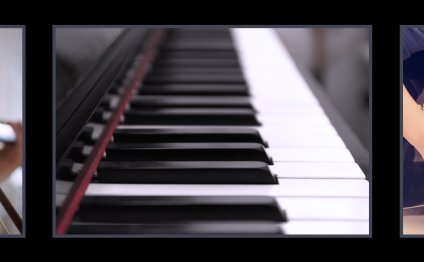
Voice lessons for children
I am often asked if it is safe for children to take voice lessons. A child's health and safety are a parent's first consideration, even when it comes to how to learn to sing. The body isn't a machine. Vocal cords are small, delicate membranes. It is easier to damage the vocal cords of a child than those of an adult. Some parents have even heard that a child should wait until the voice fully matures before taking singing lessons, or risk the danger of permanently damaging the vocal cords.
Rest assured, it is absolutely safe for children to work with a trained vocal coach, who is knowledgeable of the child's voice and employs deep care in training them - in fact, children who take singing lessons will readily learn the techniques they need to prevent injury to their vocal cords.
Learning to sing is comparable to learning to swim. A good swimming instructor will teach your child proper positioning, form and breathing to ensure safety and establish technique. Without good instruction, one could get discouraged or hurt, but with guidance, a child takes quickly to the water and is able to increase stamina and ability as she grows. Especially with the voice, because it is delicate tissue, it is important to work methodically and gently, focusing on the middle of the voice and mastering technique in this area without forcing range or volume. A child's voice should not be physically strained, pushed or overworked.
The sooner one learns the best habits to protect the voice, the better. Receiving the foundations of proper vocal technique may prevent the occurrence of serious vocal injuries later on in life. It is never too early for a child to begin ear training. The basic tenets of breath support, breath placement, and positioning of the tongue, mouth and jaw can be learned when a child is old enough to focus on vocal warm-ups.
The vocal coach that turns away a child and says, "Bring them back when their voice has matured, " I believe, does not want to work with children and the aspects of the voice that children are prepared to address.
Singing lessons will prevent your child from creating habits that may become difficult to break later on. For example, most children who love to sing listen to pop music, and they tend to do a lot of pushing and straining in attempt to repeat the high notes they hear. Kids want to imitate the sounds of their favorite pop star belting it out. The star, however, is usually a full grown adult, and if not professionally trained, then at least experienced and physically able to support those notes more adeptly than a child, who is squeezing and screeching out of their range - this can cause damage.
A good vocal coach will be able to teach your child to sing by learning and mastering songs in their range, while incorporating a knowledge of breath support, breath placement, posture and positioning. A good vocal coach will teach your child to sing without blaring headphones on both ears, so they can hear themselves and avoid training the voice to sing off pitch, rather than on. A good vocal coach will teach a child how to breathe properly and use an even, steady breath to produce sound. A great singing teacher will also expose younger students to music the child might have missed out on, because it is not featured on their favorite pop station.
YOU MIGHT ALSO LIKE


Share this Post
Related posts
Free piano lessons for children
This is a quick checklist of things to do, buy, learn and decide before your child has their very first piano lesson. Working…
Read MoreVoice lessons for Adults
I ve been toying with the idea of taking singing lessons. The reason: My singing voice sucks, but I love music and I d love…
Read More










